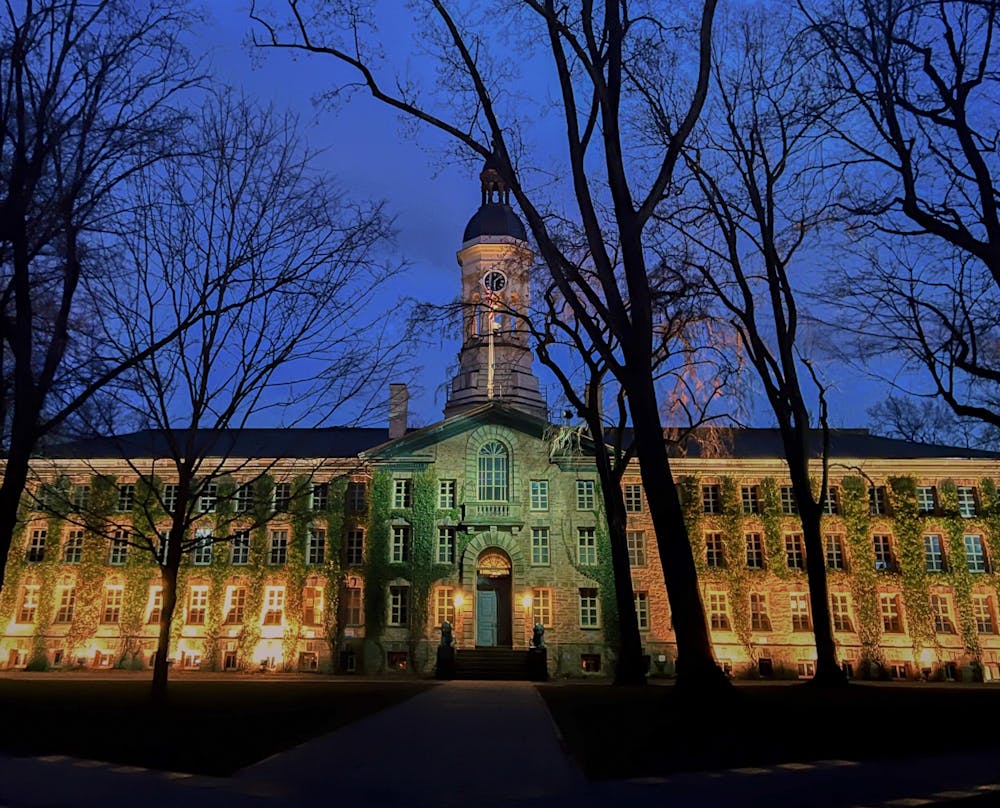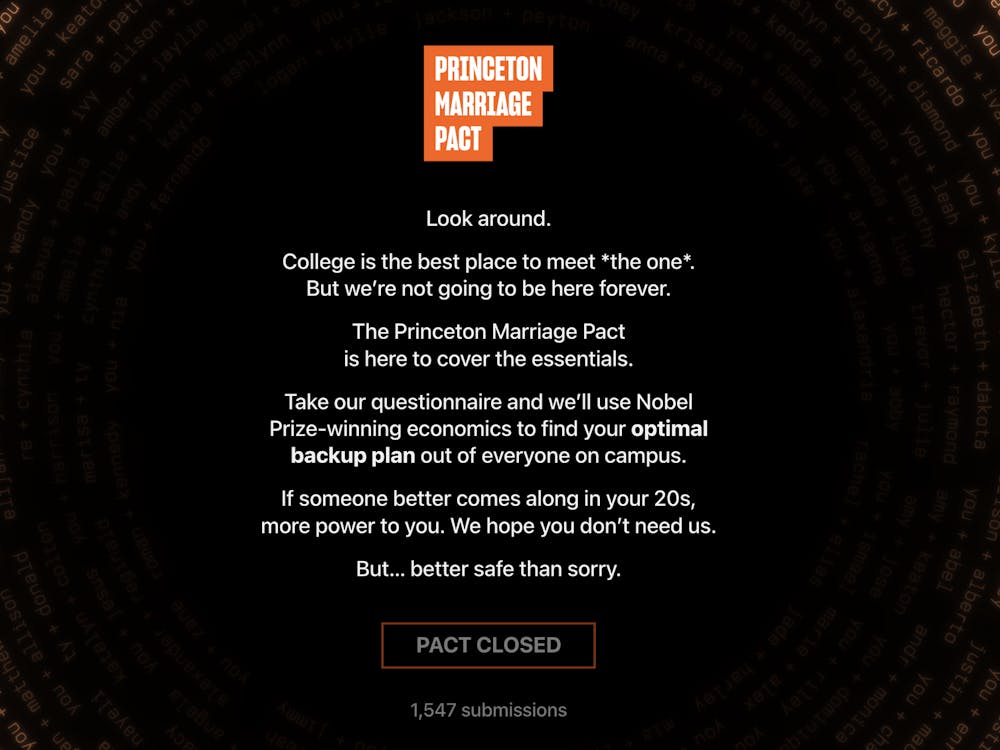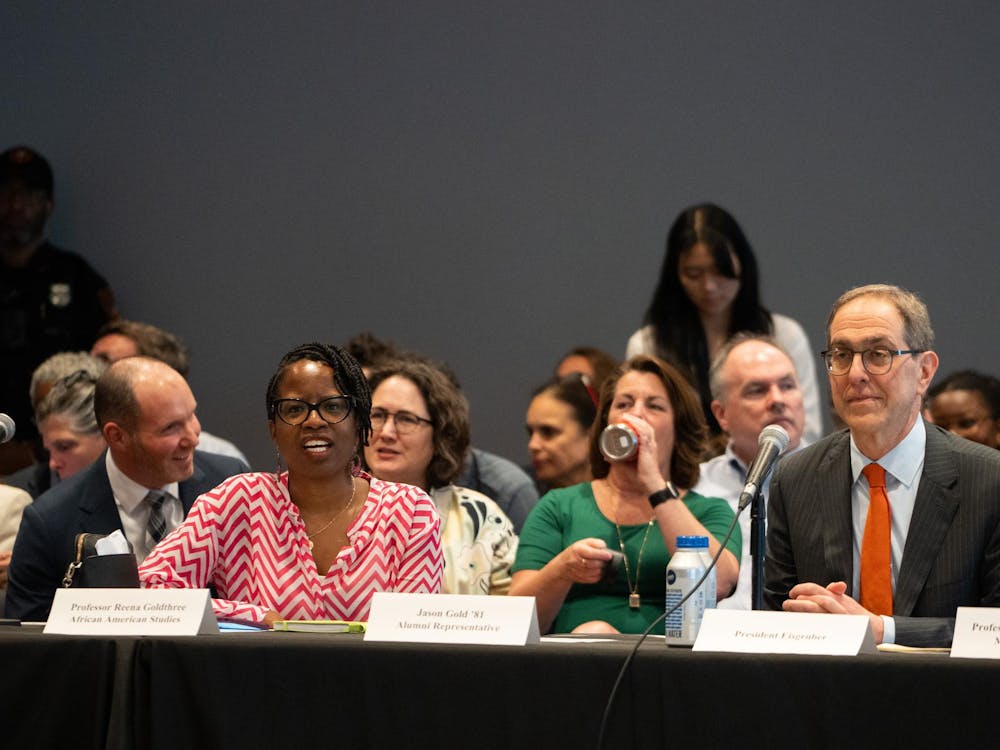Nothing is as permanent as a temporary solution. Columbia University displayed the truth of that adage last Wednesday when it announced it would go test-optional for all future application cycles, codifying the test-optional policy it first adopted in June 2020 during the COVID-19 pandemic. Nearly all of Columbia’s peer institutions, including Princeton, implemented similar test-optional policies which have also been subsequently extended. Columbia, however, is the first in the Ivy League to scrap standardized testing for good.
Princeton shouldn’t follow Columbia off the precipice. Instead, since public health concerns have substantially diminished, the Princeton Office of Undergraduate Admission should restore standardized testing, the fairest component of holistic admissions, for the Class of 2028.
Test-optional policies were initially justified by concerns about accessibility. With many schools closing because of COVID-19 during 2020, students’ access to testing facilities were restricted. As the Princeton Office of Admission observed, this particularly affected applicants “from lower socioeconomic backgrounds and underrepresented communities.” Many facilities shuttered or postponed testing during the pandemic, or had to cancel last minute because of spikes in positive cases. In light of the circumstances, Princeton’s temporary test-optional policy was a justified and reasonable accommodation.
But the public health emergency is ending. Not a single COVID-related public school closure has been reported in the United States since February 2022, and most testing facilities have re-opened. This means the Admission Office will have to make a final decision on whether or not to continue their temporary test-optional policy. It would be a huge mistake for the Office to permanently scrap testing requirements, as it would hurt the same underrepresented and socioeconomically disadvantaged students that test-optional was originally intended to protect.
Opponents of standardized testing often point out that students from privileged backgrounds enjoy an unfair advantage. Higher socioeconomic status is correlated with higher SAT scores, and disparities in SAT scores have been linked to differences in family income and race. Students with rich families can pay for expensive tutors from test prep companies, and they are more likely to secure extra time on exams as a testing accommodation. In extreme cases, thrust into the limelight with the 2019 Operation Varsity Blues scandal, celebrities have helped their children cheat, paying tens of thousands of dollars to hire professional test-takers.
These concerns are legitimate. But disparities in test-taking cannot be isolated to the test itself. The structural issues that impact low-income and underrepresented students in the SAT also impact them in every other part of the college application process. No matter what metric is used to determine access to selective universities, the rich and privileged will have an unfair advantage. If Princeton added a driving test as a component of holistic admissions, rich and influential parents would surely hire Formula 1 drivers to coach their children and buy state-of-the-art 360° cameras so that they could parallel park with ease. Yes, the SAT is skewed towards the privileged, but in deciding whether we should get rid of it, the question isn’t whether the test is skewed, but rather whether it is excessively skewed compared to other components of holistic admissions.
The hard truth is that the other major components of holistic admissions, especially high school GPA, are also susceptible to skew. There is also a significant disparity in course grades between first generation, low-income high school students and their more privileged peers, because underlying systemic issues manifest in similar ways. SAT tutors can be easily repurposed as English or math class tutors, and low-income students and students of color are consistently under-enrolled in advanced, higher-weighted AP and IB courses. Helicopter parents at the most elite private schools have acquired a notorious reputation for haranguing teachers to round up their child’s semester grade, and for leveraging their hefty annual donation checkbooks when school administrators dig in.
Move beyond quantitative metrics and it gets even worse. Paid essay-writing and editor services are a dime a dozen, and personal essay style and content are even more strongly correlated with household income than SAT. Letters of recommendation from high school teachers are subject to gender and ethnic bias in length and tone. Not to mention extracurricular activities — the non-profit organization kickstarted by a generous donation from grandpa, the service trip to Namibia (followed by two weeks’ safari vacation, of course), or the congressional internship secured with dad’s old pal on the Oversight Committee. And to top it off, Princeton still considers legacy status in admissions despite rising criticism.
At the end of the day, taking the SAT or ACT in a normal, non-pandemic year means sitting in a classroom for three hours and wiggling one’s pencil on the same exact test booklet as every other test-taker in the country. It is by no means 100% objective, but it is the fairest component of holistic admissions at selective universities. And removing the component which is, relatively speaking, least impacted by privilege would mean that admissions would become more heavily weighted towards components that are much more impacted by privilege.
As COVID-19 winds to a close, Princeton can no longer use accessibility to justify its test-optional policy. Rather than doubling down like Columbia, it should reinstate its pre-COVID policy of requiring standardized testing from every student that applies. In doing so, it will transform a grueling college admissions process that often seems fundamentally unfair into something relatively but significantly more equitable.
Vincent Jiang is a sophomore from Long Valley, N.J. concentrating in the School of Public and International Affairs. As a disclaimer, there is no love lost between him and the College Board after a four-month wild-goose chase after the SAT World History Subject Test. He can be reached by email at vincentjiang@princeton.edu and on Twitter at @vincent_vjiang.









